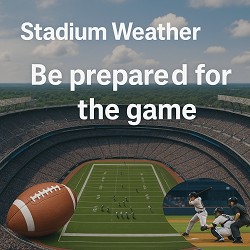Juneau, AK Weather Forecast and Current Conditions
Current Conditions From Nearby Local Station

Feels Like 35°F
at
Point Forecast at a Glance







7-Day Temperature Trend
Week Ahead Summary
High temperatures remain relatively stable through the week, ranging from 39°F to 42°F. Unsettled weather expected with wintry mix likely on at least 7 days.
Climate Context
This week's forecast shows temperatures running 4°F above the historical average for November. Normal highs for this period are around 37°F with lows around 30°F.
This Date in Weather History
1974 - A storm produced 15 inches of snow at the Buffalo, NY, airport, and 30 inches on the south shore of Lake Erie.
Juneau, AK 7 Day Weather Forecast Details
Friday Nov 14

Night: Rain and snow. Low around 38. Northeast wind 5 to 10 mph. Chance of precipitation is 100%. Total nighttime snow accumulation of 1 to 3 inches possible.
Saturday Nov 15

Day: Rain and snow, becoming all rain after noon. High near 42. Southeast wind 5 to 10 mph. Chance of precipitation is 100%. New snow accumulation of 1 to 2 inches possible.

Night: Rain likely before 9pm, then a chance of showers after 9pm. Mostly cloudy, with a low around 33. Southeast wind around 5 mph. Chance of precipitation is 60%.
Sunday Nov 16

Day: A chance of rain showers before 3pm, then a chance of rain and snow showers. Partly sunny, with a high near 39. Northeast wind 5 to 10 mph. Chance of precipitation is 40%.

Night: A chance of rain and snow. Mostly cloudy, with a low around 31. East wind around 5 mph. Chance of precipitation is 40%.
Monday Nov 17

Day: A chance of rain and snow before 9am, then rain likely. Cloudy, with a high near 39. Chance of precipitation is 60%.

Night: Rain likely. Cloudy, with a low around 35. Chance of precipitation is 70%.
Tuesday Nov 18

Day: Rain likely. Cloudy, with a high near 42.

Night: Rain likely, mainly before 3am. Cloudy, with a low around 36.
Wednesday Nov 19

Day: A chance of rain before 9am, then a chance of rain and snow. Cloudy, with a high near 41.

Night: Rain and snow likely. Mostly cloudy, with a low around 34.
Thursday Nov 20

Day: Rain and snow. Mostly cloudy, with a high near 41.

Night: Rain. Cloudy, with a low around 37.
Friday Nov 21

Day: Rain. Cloudy, with a high near 44.
About Juneau, AK
Content from Wikipedia, licensed under CC BY-SA 3.0.
How We Provide Better Local Weather
Current conditions: We use the nearest available station to your location - including professional MESONET/MADIS and local weather stations - often miles closer than regional airports.
Forecasts: National Weather Service point forecasts predict for your specific area, not broad regional zones, making them far more relevant to your location.



